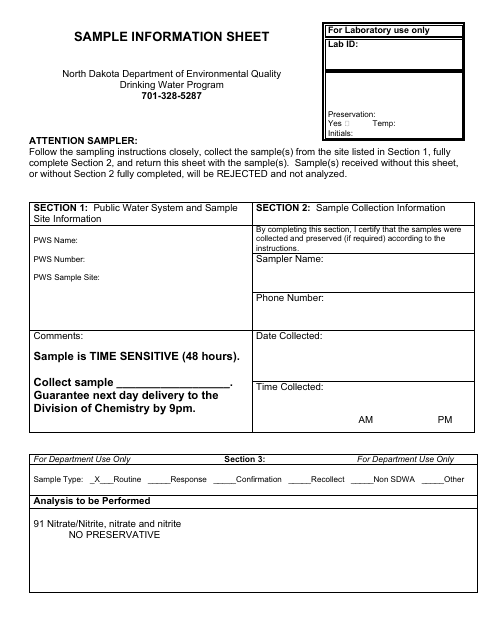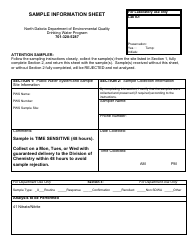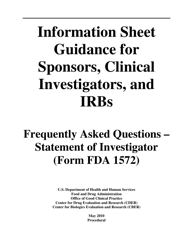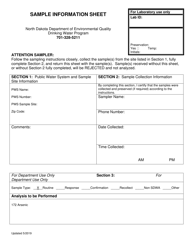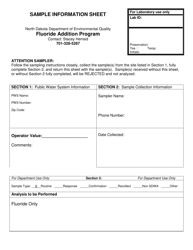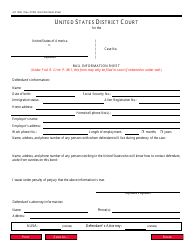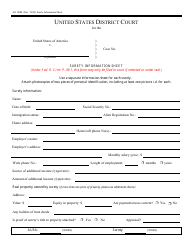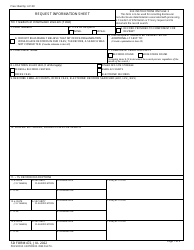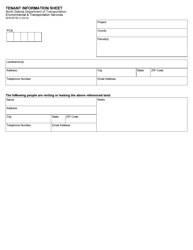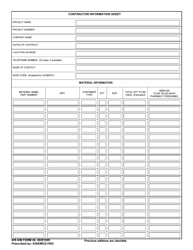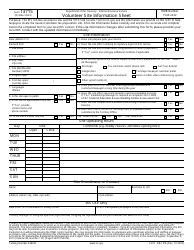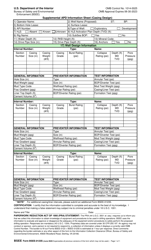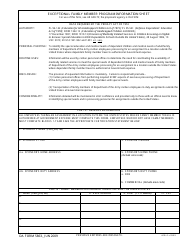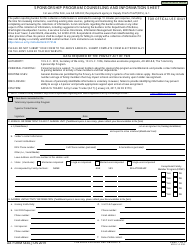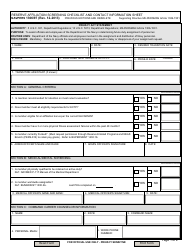Individual Nitrate / Nitrite Sample Information Sheet - North Dakota
Individual Nitrate/Nitrite Sample Information Sheet is a legal document that was released by the North Dakota Department of Environmental Quality - a government authority operating within North Dakota.
FAQ
Q: What is a nitrate/nitrite sample information sheet?
A: A nitrate/nitrite sample information sheet is a document that provides information about a specific water sample's nitrate and nitrite content.
Q: Why is it important to test for nitrate and nitrite in water?
A: Testing for nitrate and nitrite in water is important because high levels of these contaminants can pose health risks, especially to infants and pregnant women.
Q: What are nitrate and nitrite?
A: Nitrate and nitrite are chemical compounds that can be found in water and are typically produced from agricultural or industrial activities, as well as from natural sources.
Q: How can nitrate and nitrite enter water sources?
A: Nitrate and nitrite can enter water sources through runoff from fertilized fields, septic systems, and industrial discharges.
Q: What are the health risks associated with high levels of nitrate and nitrite in water?
A: High levels of nitrate and nitrite in water can cause health problems such as methemoglobinemia (also known as blue baby syndrome) and increased risk of certain types of cancer.
Q: What is the acceptable limit for nitrate in drinking water?
A: The acceptable limit for nitrate in drinking water, as set by the Environmental Protection Agency (EPA), is 10 parts per million (ppm) or 10 milligrams per liter (mg/L).
Q: What is the acceptable limit for nitrite in drinking water?
A: The acceptable limit for nitrite in drinking water, as set by the EPA, is 1 ppm or 1 mg/L.
Q: How can I reduce nitrate and nitrite levels in my drinking water?
A: To reduce nitrate and nitrite levels in drinking water, you can use a water treatment system, such as reverse osmosis or ion exchange, or consider using an alternative water source if contamination is persistent.
Q: What should I do if I suspect high levels of nitrate or nitrite in my water?
A: If you suspect high levels of nitrate or nitrite in your water, it is recommended to have your water tested by a certified laboratory and take appropriate actions based on the results.
Form Details:
- Released on January 1, 2023;
- The latest edition currently provided by the North Dakota Department of Environmental Quality;
- Ready to use and print;
- Easy to customize;
- Compatible with most PDF-viewing applications;
- Fill out the form in our online filing application.
Download a printable version of the form by clicking the link below or browse more documents and templates provided by the North Dakota Department of Environmental Quality.
